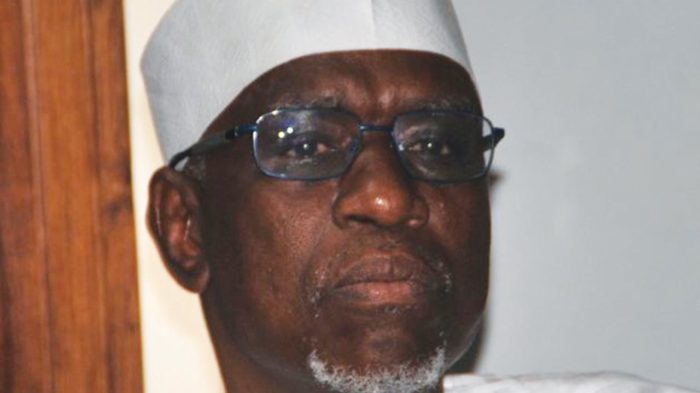

THE executive secretary of the National Universities Commission (NUC), Professor Abubakar Adamu Rasheed, says strikes are destructive to the nation’s university system and urged members of the Academic Staff Union of Universities (ASUU) and other staff unions to seek other creative means to express their grievance against the government.
Speaking while reviewing activities of the commission in the outgone year, Rasheed said strikes had become old-fashioned.
He lamented that while the system was celebrating the return to academic activities when the much-dreaded Covid-19 pandemic was surmounted, causing the Nigerian university system to bounce back to academic eminence against all predictions, the gain was cut short by the avoidable eight-month strike of ASUU and other university-based unions which led to disruptions of academic calendar in most public universities.

He, however, noted that with the well-laid down blueprint for the revitalisation of university education in Nigeria, regarded as the 2018-2023 repositioning agenda of NUC, the university system had in the past six years, witnessed a series of reforms aimed at revitalising it.
He revealed the commission had made significant progress in discharging its mandates. One of such achievements was the conclusion of the comprehensive review of the university curricula, which commenced in 2018, with its eventual unveiling and launch as Core Curriculum Minimum Academic Standards (CCMAS), indicating that the NUS had been making steady progress in its match towards remaining globally competitive.
In achieving the set goals, he said that the commission had continued to stay focused on reforming the system through curriculum reengineering, the introduction of new programmes, unbundling of some programmes and undertaking routine accreditation exercises, resource verification visits and ensuring improvement in universities’ global ranking as well as research and innovation.

Under the curriculum reengineering project, the commission, he said, had thrown open the CCMAS to the universities after developing the 70 per cent content, with a bid for the universities to fill the intended gap with their local peculiarities by implanting the remaining 30 per cent on which premise the CCMAS was conceived.

Rasheed noted that the goal of the commission by the end of 2023, as envisaged, was that the new curriculum of the Nigeria university system would be rated among the best three in Africa, if not the best, in terms of its relevance to “producing nationally and regionally-relevant graduates with high-level human resources for delivering on Africa’s Vision 2063 and to ensure improvement in universities’ local and global rankings.
Meanwhile, the National University Ranking Advisory Committee (NURAC), under the chairmanship of Professor Emeritus Peter A. Okebukola, was reconstituted in the out-gone year.
Following the outcome of the 2021 ranking report, the committee was composed to provide the required leadership for the exercise’s sustenance and sensitise stakeholders to stimulate healthy competition among Nigerian universities.
While listing some of the ongoing reforms in the university system, the executive secretary reassured that the commission would continue to bring more innovations in developing university education in Nigeria to foster national development.
He added that as part of efforts towards ameliorating and addressing the daunting issue of access to quality university education in Nigeria, the commission had continued to encourage and professionally guide the system’s expansion by establishing more universities.
Rasheed had also identified the daunting low carrying capacity of the existing universities as against the growing number of qualified candidates who annually sit for the entrance examination into university but are unable to gain admission due to limited available space.
The Commission has also unbundled Mass Communication undergraduate programmes into seven separate ones: Journalism and Media Studies; Public Relations; Advertising; Broadcasting; Film and Multimedia studies; Information and media as well as Development Communication studies.
He disclosed that to meet the global trend in technology and other emerging areas, the commission had introduced Allied Medical Sciences, Architecture, Computing, and Communication Studies as additional Disciplines in the NUS, making it a total of 17 Disciplines in the system.
In the area of collaboration and partnership, the commission collaborated with the Tertiary Education Trust Fund (TETFund) by organising a workshop for Directors of Research and Development in public universities in Nigeria, with the outcome leading to the federal government, through TETFund, increasing the seed fund for research from N3billion to N8.5 billion.
The NUC boss further noted that towards the end of the year, he inaugurated a high-powered committee to reinvent Nigerian Universities Research and Development Fair (NURESDEF), which was renamed Nigerian Universities Research and Innovation Expo (NURIEX) and enlighten Universities in the country on what the Fair would become.
He maintained that the essence was to rejuvenate the universities to re-invent themselves to avoid replicating what beset the public primary and secondary schools.








